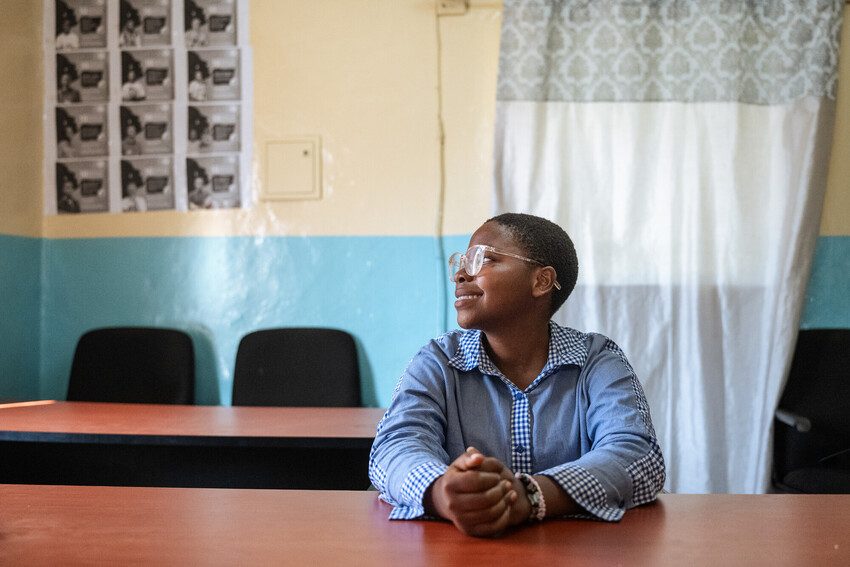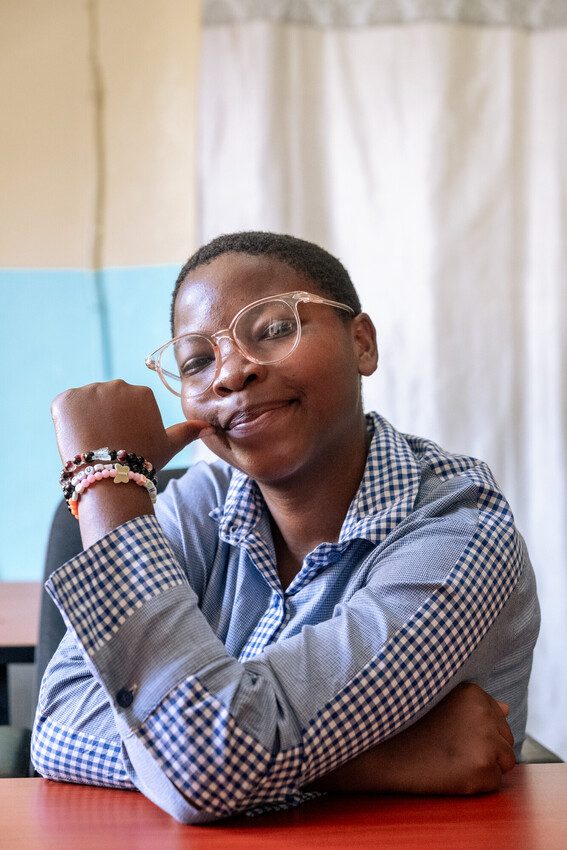Florence: A voice for change in Dzaleka Refugee Camp
4 June 2025"An educated refugee can stand on their own two feet and provide for themselves," says Florence, an 18-year-old refugee from DRC who now lives in Dzaleka refugee camp, Malawi.
At just 6 years old, Florence fled the Democratic Republic of Congo with her mother, escaping the shadow of conflict after her father vanished.
Arriving at Dzaleka Refugee Camp in Malawi, she found safety but also limitations. Now 18, Florence has transformed her challenges into a powerful advocacy journey, using her voice to champion the rights of refugees, especially girls, through the Dzaleka Children’s Parliament.

Life in Dzaleka, located 40 kilometres north of Lilongwe, is a complex tapestry of resilience and struggle. Home to over 50,000 refugees from countries like the DRC, Burundi, and Rwanda, the camp grapples with overcrowding, restricted movement, and limited access to education and jobs due to Malawi’s encampment policy.
Yet, within these constraints, a vibrant community thrives, fuelled by creativity and hope. Florence, who arrived feeling the weight of loss, found unity among people from different nations. “Here at the camp, we felt safe,” she says. “No one would come in and kill your family in the middle of the night. We were united.”
Her advocacy began with songwriting, a creative outlet to process the impact of war on her life and community. At 15, inspired by friends who found purpose in the Children’s Parliament, Florence joined the initiative, established by Plan International and UNHCR in 2015 to amplify young voices. The parliament, with 75 members – 45 girls and 30 boys – empowers children aged 8 to 17 to address issues like education, child protection, and gender equality through debates, research, and meetings with decision-makers.
Gender expectations
Growing up in a male-dominated household, Florence faced rigid gender expectations. As the only girl among many brothers, she was often burdened with unequal tasks. Undeterred, she campaigned for fair treatment, eventually winning her mother’s support and transforming her household dynamics. “Now they help me with every task I’m given,” she says proudly. “Girls should be free from an early age. A girl should be able to enjoy the beauty of the world.”
“Girls should be free from an early age. A girl should be able to enjoy the beauty of the world.”
Florence, 18.
One of Florence’s most impactful experiences was supporting a friend with a disability to speak at a national budget consultation in Lilongwe. Witnessing his growing confidence as he advocated for himself in the Children’s Parliament reinforced her belief in empowerment through education. “I tried to empower him to face his challenges himself,” she says. “His self-confidence grew, and he was able to speak for himself.”
Despite her achievements, Florence faces persistent challenges. Discrimination at school and criticism from her community for speaking out test her resolve. Yet, she remains steadfast, driven by a vision of a future where refugees are seen not as burdens but as equals. “People talk about refugees as if we are nothing,” she says. “Your dreams cannot come true. Very few refugees go to university. ‘Refugee’ is just a name. We have the same skin colour and can do everything a Malawian can do.”
‘Refugee’ is just a name. We have the same skin colour and can do everything a Malawian can do.”
Florence, 18.

Education is the key
Florence’s message is clear: education is the key to breaking the cycle of dependency. She advocates for scholarships to empower young girls with skills to teach others, fostering self-reliance. “An educated refugee can stand on their own two feet and provide for themselves,” she emphasises. “They will continue to increase their knowledge within the community and ultimately contribute to life in the camp.”
Through her work with the Children’s Parliament, which influenced the creation of the Dowa Children’s Parliament in 2018 and the reinstatement of the National Children’s Parliament in 2021, Florence is part of a movement giving young refugees a platform to shape their futures.
Her story is a testament to the power of resilience and advocacy, proving that even within the confines of a camp, dreams can take root. For Florence, the fight continues – for education, for equality, and for a world where young refugees, especially girls, are given the freedom and support to thrive.


